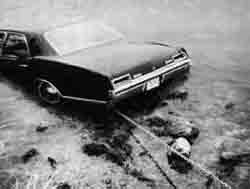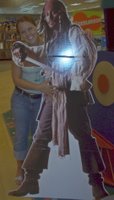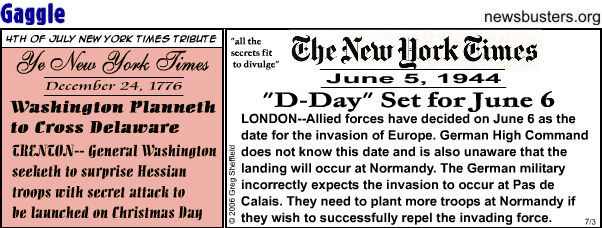Stubborn As A Mule, or Smarter Than a Local?
TURNING UP THE HEAT
As a tour guide (yes, I'm one of the evil ones who drive carriages) I would like to address a few things. Number One, I work for Palmetto Carriage, and we voluntarily use a team of 2 mules to pull our large carriages, since mules are more heat adaptable than horses. I would like to know what experience that protestors have dealing with large animals, mules or horses. Following is a transcript of the Courier article written by Kyle Stock, and my comments (in gray). Also, I will be inserting quotes from a famous statesman to illustrate my points.
Quote # 1: “I use emotion for the many, and reason for the few.” -- Adolph Hitler
News article:
The city of Charleston is getting around to regulating one of its oldest industries, animal-drawn carriage tours, but a coalition of residents argues the process has been hijacked by tour companies and says officials won't go far enough to protect tourism's beast of burdens. "I really felt like we were hitting a spot where everyone was pretty happy, and all of a sudden it was like a political movement just jumped up," said John Malark, an equine veterinarian on the committee writing the new rules. "They are trying to do everything they can to limit the amount of trips that are done. ... I hope they don't derail the whole process and cut down two years of work."Although City Council will not see the proposed legislation until September or October, critics are already hot under the collar about several issues, particularly the proposed temperature thresholds at which guides must stop animal-drawn tours.A group of residents calling itself the Carriage Horse Safety Committee said draft animals often get sick and die in cramped stables because of their workload, citing a carriage company employee they declined to identify. (My suggestion: instead of lumping the entire industry in one package, why not check out each company indivually, and see which of the companies are breaking the rules. Why not root out the bad apples, the ones breaking the law and leave the other more responsible companies alone? For the same reason that a certain carriage company {Polo} can be in residential neighborhoods after specified hours and not get ticketed, they have an ”in” with the city's bubba network.)
(Responsible) Carriage companies deny those claims and have suggested that those pushing for tighter guidelines are more interested in keeping carriages away from their peninsular homes.In the balance hang six companies and a multimillion-dollar industry that loads about 30,000 carriages a year. For some time, the city has had rules detailing acceptable carriage routes and traffic levels and requiring a "diapering apparatus" on each horse and mule. But it has little on the books about animal welfare.
Voluntary guidelines The carriage industry in Charleston has been operating voluntarily on a set of veterinarians' "guidelines." Draft animals are fed, watered, rested and monitored based on these loose, but largely unenforceable, rules. Tour guides are supposed to check animals' temperatures when the weather hits 95 degrees, and stop tours when the mercury ticks up to 98 or when the total heat index -degrees plus humidity level - is 185.
The city has paid a third-party veterinarian $200 to $300 a day to check up occasionally on the animals and businesses. Amid a push for stricter regulations, the city formed a six-person committee in early 2004 to research the contested issues and write a comprehensive ordinance. After almost 2 1/2 years, the committee has a draft that reads much like the current guidelines. Under the proposal, companies would start taking the temperature of draft animals after every tour when the mercury hits 90 degrees. They would have to stop tours when temperatures hit 98 degrees or when the combination of heat and humidity tops 180.Residents and animal-welfare advocates are arguing for lower thresholds. They say they have spent a great deal of their time in the past two years following the committee's progress and debating issues. (But have they spent any time working in the carriage industry, or even witnessing the day-to-day care and maintenance of the animals?)
Quote #2: “The masses of the people will more easily fall victim to the
big lies than to a small one.” -- Adolph Hitler
Vocal critic
One of the loudest critics of the proposed regulations has been downtown resident Ellen Harley. In a June 5 e-mail, Harley wrote that the committee's draft ordinance is weaker than the 1993 guidelines."The carriage operators right now 'own' the committee; they are in complete control," she wrote. "Don't think that the SPCA or the veterinarian will protect the animals," Harley wrote, referring to Malark and another committee member from a local animal-welfare organization.The e-mail was forwarded to the committee and prompted a response from its chairman and at least one other member. Cathy Forrester, the committee head and director of development at the Coastal Conservation League, said the message was disturbing. "To suggest that the carriage operators 'own' the committee ... is a disservice to all of us and does not advance the process," she wrote.Committee member Tom Doyle, owner of Palmetto Carriage Works Ltd., wrote of Harley: "The collection of lies and insults in the e-mail sent under your name went well beyond the committee and into the community."
(Ellen Harley, 23 Wentworth Street / 843.853.7282
Historic Ansonborough Neighborhood Association /www.ansonborough.org
She is listed on the website as living at 46 Anson Street, but listed in the phone book at the Wentworth Street address. However,the last update on the website was 2003. Makes you wonder how active they actually are,doesn't it? What do they do, other than get together to drink and complain about carriage tours?)
War of words
The debate continued this week in a string of e-mails copied to The Post and Courier. Harley called Doyle's response "unfortunate and hysterical" and again criticized the makeup of the committee. She noted that in South Carolina animals can be euthanized without a veterinarian present, a loophole that she said may have allowed carriage companies to keep a clean record on animal mistreatment. Doyle, in turn, called for Harley to reveal evidence of heat-stressed horses. "Put up or shut up," he wrote. Pat Jones, president of the Historic Ansonborough Neighborhood Association, supported Harley's statement. "We have been rebuffed by the committee at all stages," Jones wrote. (Again, I suggest to Jones (no relation by the way, whew) and Harley, come work in the industry for a few days, help take care othe animals, or at least spend an entire day watching the operation from opening to closing. And by the way . . . if either of you own a cat, do you change your cat litter box EVERY DAY, like we replace the wood chips in all 12 of our sizable stalls each day?)
Conflicts of interest?
In an interview, Harley and Jones also said Malark, the veterinarian on the committee, has a conflict of interest because he counts carriage companies as clients. Malark said the only other equine veterinarian in the area also does business with carriage tour operators. (Hmmm, the veternarian was put on the committee due to his experience in dealing with equine animals, but Jones and Harley complain that since he takes care of carriage animals, he should be disqualified. Would you go to a plastic surgeon to treat an intestinal disorder? When your car breaks down, do you take it to an attorney?)
"Most of these critics are downtown Charleston residents, and they have some issues with the carriage companies for a lot of other reasons than the care of their horses - traffic issues, etc.," Malark said. "I don't know that anyone that lives downtown with a complaint doesn't have a conflict of interest of their own."Harley and Jones said their push for tighter carriage rules is not selfishly motivated.
"What we're seeking is humane treatment for the animals, period," Harley said. "That's the only agenda we have."
End of news article
By the way, Harley recently coordinated a full-day campaign workshop for the League of Women Voters to equip women with the skills to run for office. At the workshop, more than 50 women of all ages and backgrounds learned the nuts-and-bolts of running a campaign—from making the decision to grassroots organizing to fundraising. Hmmm . . . Sounds like Harley is not only a politically active person, but one who is educated in the manipultion of public opinion; it makes you wonder about her agenda, doesn't it? Beware of politicians who insist they only have one agenda. After all, Bill Clinton's agenda as president (other than dropping trou), was a peace accord in the Mid East between Israel and the neighboring Arab states. Worked out well, didn't it?
Quote # 3: "The greater the lie, the more readily it will be
believed." -- Adolph Hitler





 ________________________________________________________________________
________________________________________________________________________
